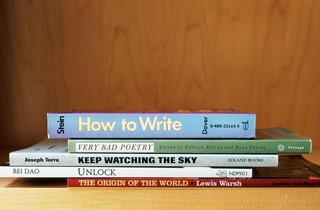Three of today's most interesting young female novelists discuss their craft in advance of their appearances at Festival No. 6
As a writer, it must be incredibly irritating to be continually probed for the reason why you write, requiring an armoury of quelling responses along the lines of “just because”. But for non-authors, the question is an intriguing one. Writing is a singularly anti-social job, one that can only really proceed with success if the practitioner consigns themselves to days spent alone with just the click of their keyboard for company, and Youtube for the odd distraction. Can the transient pleasure brought to a reader ever counterbalance the exhaustive hours and years spent by the author redrafting, chopping, amending, finessing and, perhaps most difficult, receiving in good grace the criticism of others?
“I write entirely to find out what I’m thinking, what I’m looking at, what I see and what it means” — Joan Didion
Many people have opined on why they write. George Orwell listed four motives for why authors put pens to paper: sheer egoism, aesthetic enthusiasm, historical impulse and political purpose. Joan Didion said “I write entirely to find out what I’m thinking, what I’m looking at, what I see and what it means”. For Gloria Steinem, “Writing is the only thing that, when I do it, I don’t feel I should be doing something else.” Obviously every writer is different, but with September’s Festival No. 6 featuring such a strong literary line up, we decided to try and dig further, asking three of the young female authors taking part to tell us what inspires them, and for their words of wisdom to any aspiring writers.
Evie Wyld, author of All the Birds, Singing & After the Fire
"I never had that feeling of ‘I want to be a writer.’ I just wanted an outlet. Now I do it to try and work out what I think about things, and to try to understand people a little better. As for tips, remember there is no hurry, it’s a very long process with not a lot of money in it, the only thing you can do that will give you a good chance at success is trying very hard to make your writing the best it can be – this can be exhausting, you can feel sick of it, you can feel done, but that doesn’t mean it’s there yet. Don’t talk to anyone too much about what you’re writing, it can stop you doing it, it can get you caught in a rut of the words you’ve spoken out loud."
Emma Jane Unsworth, author of Animals & Hungry, the Stars and Everything
"For me, writing is not a decision as such – I don’t know what I think about things until I write them down. It’s how I process the world. I want to be able to write how I think, and how I think other people think. That’s the constant challenge. Advice-wise, whatever it is you’re working on, finish it. Get to the end. Create some kind of complete story ‘shape’. This can (and probably will) be messy and wrong, but you need to shape it into something because only then will you know what you’re dealing with. Also, learning how to workshop other people’s work, and receive criticism on your own, is a real skill. I don’t believe there’s such a thing as an aspiring writer: you either are or you aren’t. What people usually mean when they say ‘aspiring writer’ is one who isn’t published yet. Well, don’t focus on that. That’s a red herring. Focus on making whatever you’re writing really fucking good. The rest will take care of itself."
"Writing is not a decision as such – I don’t know what I think about things until I write them down" — Emma Jane Unsworth
Zoe Pilger, author of Eat My Heart Out
"I’ve always wanted to be a novelist – I was inspired in my early 20s by the many female novelists that I read and loved, from Jane Bowles to Anna Kavan. I write because I love it. Locking yourself away in a room for possibly years on end and making up strange stories is not a lifestyle that would suit everyone. You have to have a lot of stamina for solitude. But it’s thrilling too. What tips do I have? Don’t give up – persistence is important. And read a lot – I never did a creative writing course, but I tried to teach myself to write fiction by reading as widely as possible. Fiction is a space of total freedom wherein you can do what you can’t do in life. This has particular resonance for a female author writing a female protagonist who disregards moral conventions. There’s still an expectation that female characters should be ‘nice’ rather complex."
Festival No. 6 runs from 5-7 September in Portmerion, Wales.
